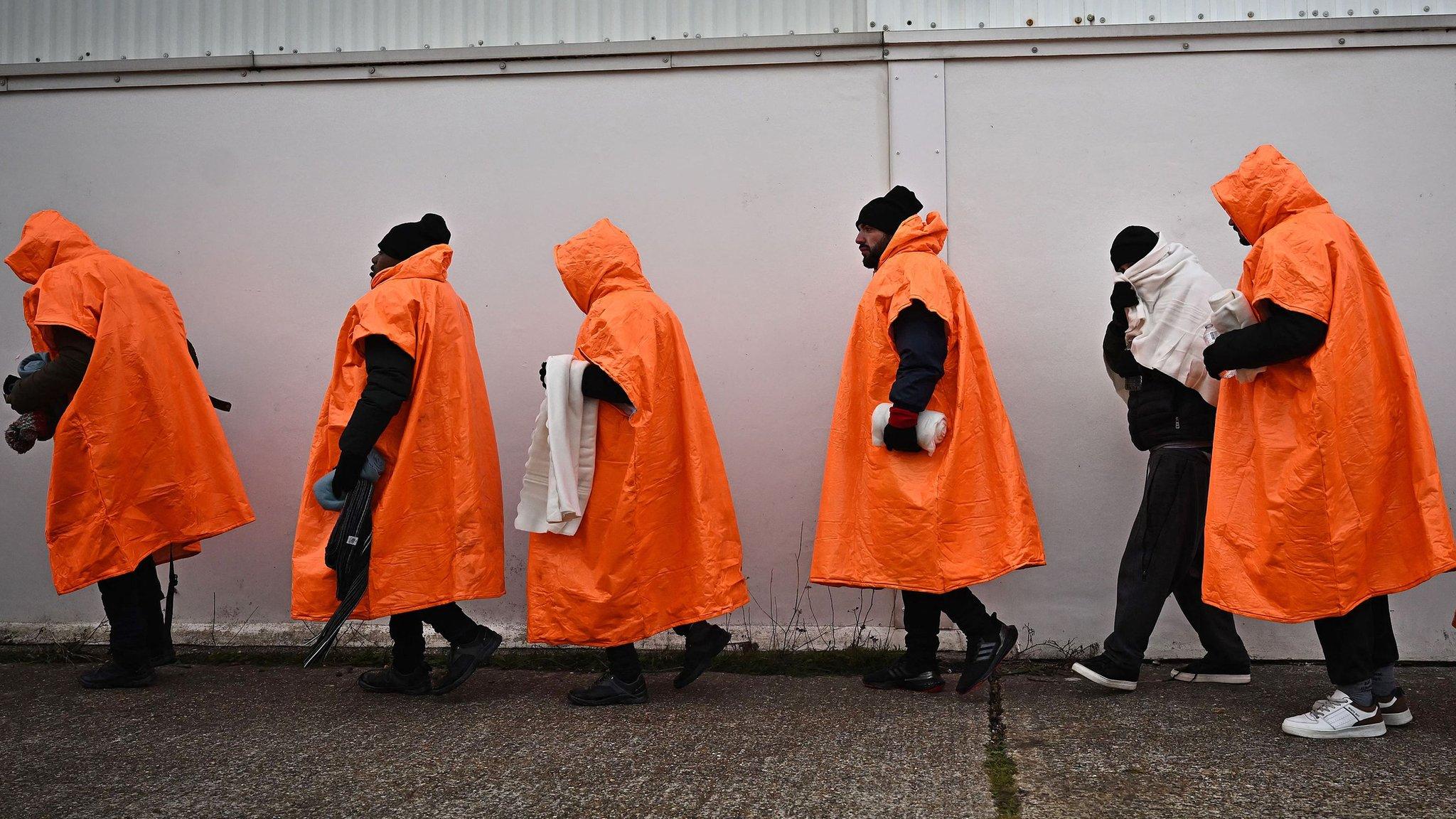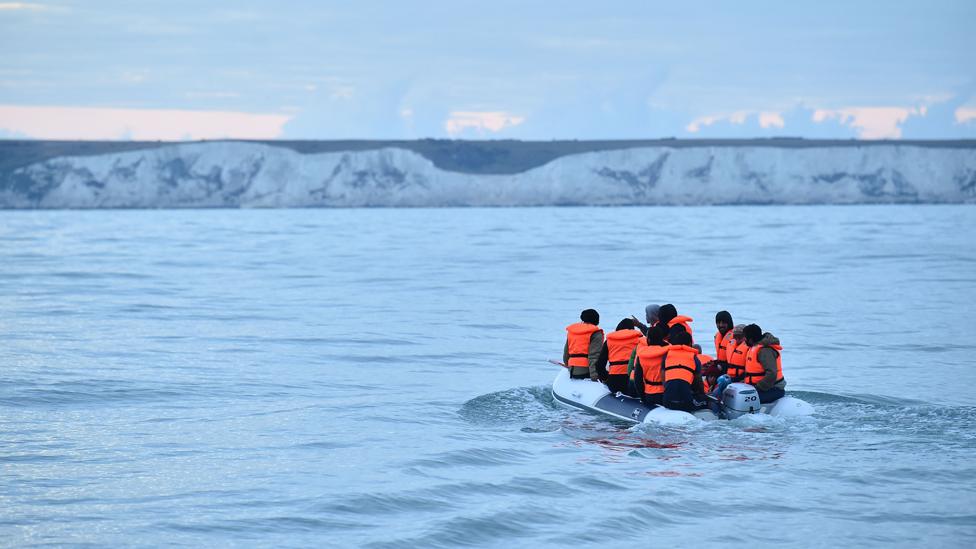Channel migrants: Chance for progress - but can Sunak deliver?
- Published
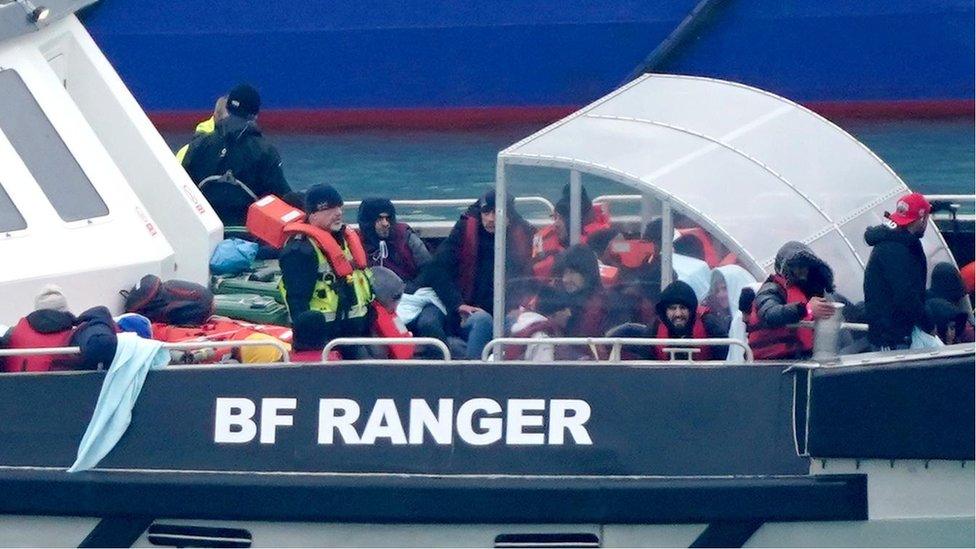
As the government prepared to announce plans to tackle small boat crossings more than 100 migrants arrived along the Channel coast in three vessels
It is dark, cold and wet.
I'm on the seafront in Dymchurch in Kent, as we hear more than 100 migrants have arrived in three small boats along the Channel coast in the last 24 hours.
The latest arrivals among thousands - as we await the government's plan to do something about it.
Senior figures in Whitehall look at the current situation and contrast it with just over four years ago when the former Home Secretary Sajid Javid rushed back from a holiday after a group of 12 migrants were spotted in Greatstone on Sea, five miles down the road from here.
The numbers now, bluntly, are huge in comparison with then.
So what are ministers planning?
We will get the details on Tuesday lunchtime.
Here are the challenges they need to address:
How do you reduce the demand for people to want to attempt a crossing?
How do you deal with the criminal gangs that are driving this trade in people?
And how do you deal with the massive backlog of migrants already here and the colossal costs with it?
Labour are scathing about what they have heard so far, suggesting it is reheating previous plans that have not worked.
But they acknowledge there are no easy solutions.
One senior government figure suggested their plan, as it was being worked up, would "press our nose up against the window of legality".
In short, they need a solution that is sufficiently radical to make a difference, but on the right side of the law, including the UK's commitments to the European Convention on Human Rights, which the government remains committed to, for now at least.
But ministers expect this to cause a row.
It is perhaps the first row they have consciously picked since Rishi Sunak became prime minister, rather than walked into by accident.
It is, remember, one of the PM's five key promises.
Three relate to the economy, one to the NHS and the final one is to "stop the boats".
Quite the challenge.
It is the "last chance for the Conservatives to sort this," one insider acknowledges - and Conservative MPs say it really matters to plenty of the voters they want to keep onside.
"It also helps keep the right of the party happy", a former cabinet minister tells me.
And yes, it does have the capacity to bind the Conservatives together, if - and it is a big if - the plan is seen to work.
Mr Sunak sees the issue as one about fairness.
A sense that it is unfair that people attempt to get here illegitimately, as he will argue. A sense that the UK is a fair and tolerant and welcoming country, but that has to include being firm about those who are seen to abuse the system.
There is a reason this is happening this week. The prime minister thinks he has reset relations with the European Union with his new Brexit deal for Northern Ireland.
And he is meeting President Macron of France in Paris on Friday.
A window for progress is open. Or at least there's the absence of shutters.
For "far too long" we have ended up annoying the French on this, a minister says. "We have to do something that makes it work and keeps them onside."
Don't expect anything instant.
But it is a benchmark against which Rishi Sunak has asked to be judged.
And we are about to find out, and be able to scrutinise, what he is planning.
Related topics
- Published6 March 2023
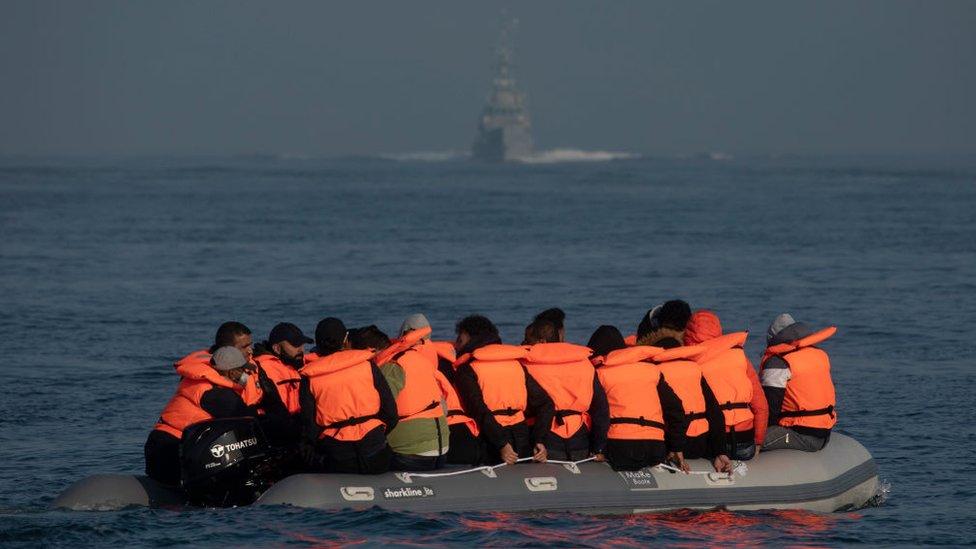
- Published4 January 2023
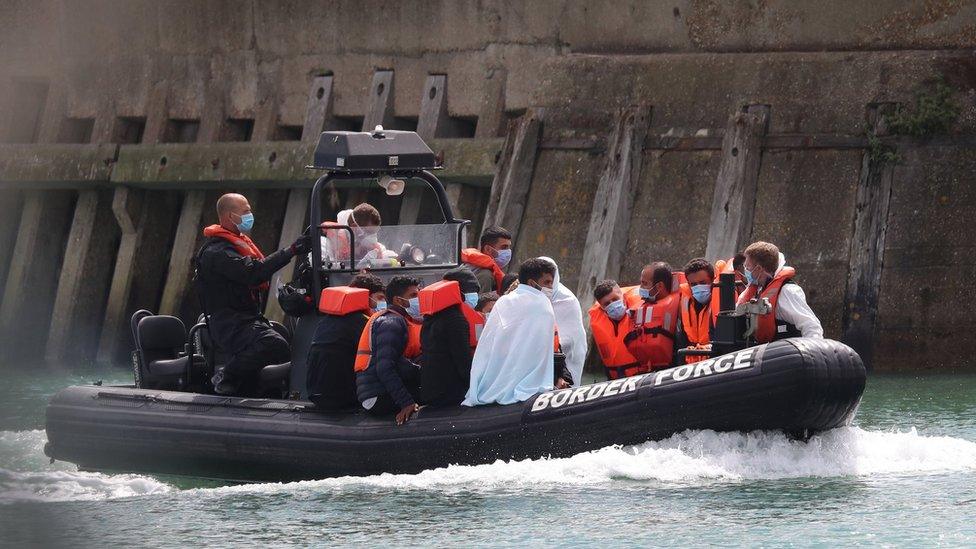
- Published13 December 2023
